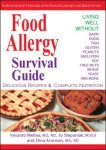Stomach Pain?
Here are the 9 Most Common Sources and What to Do
by www.SixWise.com
Stomach pain is incredibly common, impacting just about everyone at one point or another. Sometimes, such as if you've just eaten a giant bowl of spicy chili, the cause is obvious. Others, and more often, you may have no idea what's causing the pain.
|

Constipation is the most common cause of stomach pain in children, new research shows.
|
Because your abdomen houses numerous organs (your stomach, small intestine, colon, liver, gallbladder, and pancreas), the first step to identifying the cause of your stomach pain is to figure out where it hurts. According to the Mayo Clinic, you can then narrow down the source accordingly.
Navel: Pain near your bellybutton may be related to a small intestine disorder or an inflammation of your appendix.
Upper middle abdomen: Pain in the upper middle section of your stomach, just above your abdomen, may be a sign of a stomach disorder. Persistent upper middle abdomen pain may be related to your pancreas or gallbladder.
Upper left abdomen: Pain in this area is uncommon, but may signal a stomach, colon, spleen or pancreas problem.
Upper right abdomen: Pain in your upper right abdomen (that may also extend to your back) may be related to inflammation of your gallbladder, or on occasion could be caused by an inflamed pancreas, colon or duodenum.
Lower middle abdomen: Pain that spreads to either side below your navel can indicate a colon disorder, kidney stones or urinary tract infection. In women it may also signify pelvic inflammatory disease.
Lower left abdomen: This suggests a problem with your lower colon, where food waste is expelled. This could include inflammatory bowel disease or diverticulitis.
Lower right abdomen: Pain in this area may be caused by inflammation of the bowel, spreading pain from appendicitis, hernia, or ectopic pregnancy.
Migrating pain: Because your abdomen houses deep nerve pathways, it's possible for pain to migrate to other areas of your body. For instance, gallbladder inflammation can cause pain in your chest and right shoulder, while pain related to your pancreas can travel between your shoulder blades.
The Most Common Causes of Abdominal Pain
Most of the time abdominal pain is not serious, however it can be a sign of severe underlying illness in some cases. Most often, pain in your abdomen will have one of these causes:
1. Indigestion: This results in burning in the stomach or upper abdomen, along with bloating, belching and gas. Indigestion may be a sign of gastroesophageal reflux disease (GERD), ulcers or gallbladder disease. Most cases of indigestion go away within a few hours, but if your symptoms get worse you should see a doctor.
2. Constipation: A swollen abdomen and abdominal pain is common with constipation. In children, in particular, constipation is the most common cause of abdominal pain, according to a recent study in the Journal of Pediatrics. Constipation can often be relieved by:
-
Drinking two to four extra glasses of water a day
-
Drinking warm liquids, particularly in the morning
-
Eating more fruits and vegetables
-
Eating prunes or bran cereal
3. Stomach flu: More than 90 percent of stomach flu outbreaks in the United States each year are caused by a group of related viruses called norovirus. The illness is usually self-limiting and will disappear after a day or two (though you can remain contagious for at least three days, and up to three weeks, after symptoms resolve).
4. Menstrual cramps: It's estimated that three out of every four menstruating women experience some form of menstrual stress, such as menstrual cramps. Menstrual cramps may be caused by prostaglandins, which are hormone-like substances involved in pain and inflammation that trigger your uterus to contract to expel its lining. Exercise, rest, massage, yoga and meditation may all help to relieve the symptoms.
|

If your stomach pain is accompanied by shortness of breath, dizziness, bleeding, vomiting or high fever you should seek help right away.
|
5. Food poisoning: More than 250 different diseases can cause food poisoning, but some of the most common diseases are infections caused by bacteria, such as Campylobacter, Salmonella, Shigella, E. coli O157:H7, Listeria, and botulism. Most cases of food poisoning go away on their own in several days, but if the condition is persistent or severe you should see a doctor.
6. Food allergies: To find out if a food allergy is causing your abdominal pain and cramping, see this past article How to Determine if You Have a Food Allergy. There is currently no way to cure food allergies, so the best, and only, way to avoid a reaction is to strictly avoid the allergy-causing foods. If you have a food allergy, be sure to check out The Food Allergy Survival Guide Book, our top-recommended source for anyone with food allergies. You'll learn what your food triggers might be, how to avoid them, easy-to-use alternatives, and even great-tasting allergen-free recipes.
7. Gas: Traditionally, one of the top recommendations, including from the American College of Gastroenterology, to keep gas to a minimum is to identify gas-forming foods in your diet, then avoid or reduce them. Foods that are typically considered to be highly suspect include:
However, some experts are now saying that avoiding these foods, particularly those that are high in fiber, may be a driving force behind the gas. The solution is to be sure to include these foods in your diet regularly, but make the initial transition very slowly.
8. Lactose intolerance: This is an inability to fully digest lactose, or milk sugar, in dairy products. It's caused by a deficiency in lactase, an enzyme produced by your small intestine that breaks down lactose.
|
Food Allergies Causing Your Stomach Pain? Get The Food Allergy Survival Guide Book!
 For a complete guide on how to eat if you have food allergies and intolerances, check out the highly recommended Food Allergy Survival Guide Book. In it you'll learn: For a complete guide on how to eat if you have food allergies and intolerances, check out the highly recommended Food Allergy Survival Guide Book. In it you'll learn:
- How to avoid the foods and ingredients that trigger reactions
- How to substitute healthful ingredients for those that trigger allergic responses
- How to meet recommended nutrient intakes while avoiding trigger foods such as dairy products, eggs, gluten-containing grains such as wheat, or other food culprits
- How to determine which food(s) may be triggers for your symptoms ... and much more!
Find out More About The Food Allergy Survival Guide Book Now!
|
If you love dairy but are lactose intolerant, there's good news: it doesn't mean you can't ever eat dairy. Consuming dairy products in small amounts and with other foods usually helps to bypass symptoms. Also, certain dairy foods, such as hard cheeses, have small amounts of lactose and can be enjoyed by most people. Cultured milk products like yogurt and kefir are also a good choice because they contain good bacteria that help break down the lactose for you.
Other options for people with lactose intolerance include taking probiotics -- good bacteria that may help your body digest lactose -- and using lactase enzyme tablets just before a meal or snack.
9. Ulcers: Ulcers lead to a burning pain in the middle or upper stomach between meals or at night. You may also have bloating. To help treat and prevent an ulcer, eliminate the substances that may be causing it, such as alcohol and cigarettes. Overuse of certain medications (NSAIDs) may also be a problem. If your ulcer is caused by a bacteria known as H. pylori, antibiotics may be necessary to eliminate the ulcer.
When to Seek Help
If your abdominal pain is severe, recurrent, persistent, keeping you from eating, accompanied by fever or chills, or getting worse, you should see your doctor. You should get help immediately, however, if you notice:
-
Pain accompanied by shortness of breath, dizziness, bleeding, vomiting or high fever
-
Sudden or severe abdominal pain
-
Abdominal pain that radiates to your chest, neck or shoulder
-
Vomiting blood
-
Blood in your stool
-
Stoll that turns black
-
Blood in your urine
-
Swollen or tender abdomen
Recommended Reading
6 Reasons (Besides Great Looks) to Strengthen Your Abdominals, and 5 Exercises to do it Properly
The Danger of Antacids and What You Should Do Instead
Sources
WebMD.com Digestive Diseases: Abdominal Pain
MayoClinic.com Abdominal Pain
MedicalNewsToday.com December 18, 2007